One of the most frequently asked questions in my inbox is: “Can I work in fashion without a fashion degree?”
There is a false belief and poor information on this, and many girls who didn’t attend a fashion school, are often intimidated by the fashion industry and are discouraged from applying to fashion jobs and internships.
I felt like that once too. I grew up thinking that a fashion degree was essential to work in this industry. My bachelor’s degree was unrelated to fashion as I studied management engineering. Upon my graduation, I thought I could do nothing with it in the fashion industry. So I know what it feels like to want to be part of the fashion industry and feel intimidated or even not qualified to be part of it.
And why do we feel so discouraged? Because there is this HUGE myth that you absolutely need a fashion degree to work in fashion.
Since I managed to break into the industry without any fashion degree, and also no experience or fashion connections (also did I mention I wasn’t born and raised in a fashion capital?) I wanted to share my experience of how you can work in fashion without a fashion degree as well.
How to work in fashion without a fashion degree
I want you to memorize and print this in your head:
You don’t need to study fashion to work in this industry.
A fashion school is not your entry ticket get a job in fashion.
Many factors make a successful job application, and it’s not enough to have a prestigious fashion school on your resume to get a job easily.
People who attend fashion schools find jobs in fashion companies, but this does not mean they can get a job in fashion automatically and quickly. There is never a 100% guarantee.
It may come as a surprise if I tell you this, but those who study fashion have the same difficulty in getting a job compared to those who have not attended a fashion school. If you have attended a fashion school or are enrolled now, your fellow students and those from other cities also plan to get a job in fashion.
So the competition is fierce. Ever seen Confessions of a Shopaholic, the scene where girls are fighting over fashion pieces on sale? I like the comparison because it’s a bit like this to get a job in fashion.

When I landed my first internship at Alexander McQueen, I expected to find many people with fashion degrees. As I was adding my colleagues to my LinkedIn network one by one, I was surprised to know that in these top companies, only a minority of the people working there attended a fashion school! Many of the fashion graduates were in the design departments. Most of the people working in other departments such as PR, e-commerce, social media, merchandising, buying, marketing, styling, photography…. had a “traditional degree”.
I’ve interviewed many fashion industry professionals over the past 7 years with Glam Observer and I always ask them: “Do you think it is necessary to study fashion to work in this industry?” and the answer is always NO.
Fashion companies hire equally people with a fashion background and those who have degrees in other fields because they don’t only need designers but also lawyers, engineers, buyers, communication experts, etc. Fashion is not only about creativity; it’s a business, so recruiters look for candidates with the knowledge and skills a fashion school cannot always teach.
Let’s look more closely at which fashion careers do not require a fashion degree.
Fashion careers that don’t require a fashion degree
What can I do without a fashion degree?
Fashion Marketing
Fashion PR
Fashion Buying
Fashion Merchandising
Fashion E-Commerce
Fashion Editor/Writer
Event Production
Digital and Social Media
CRM (Customer Relationship Management)
Omnichannel
Fashion Brand Manager
All those careers are part of the business side of a fashion company, and they don’t require a fashion degree. Most of the professionals working in those departments have a degree in Marketing, PR, Business, Economics, Law, Journalism, etc.
Unless you want to work in fashion design, which often requires a degree in this field, fashion companies are looking for interns with a generic degree. You can confirm it yourself by analyzing some job descriptions. This for example is an offer from Gucci for a Creative Office Communications internship.
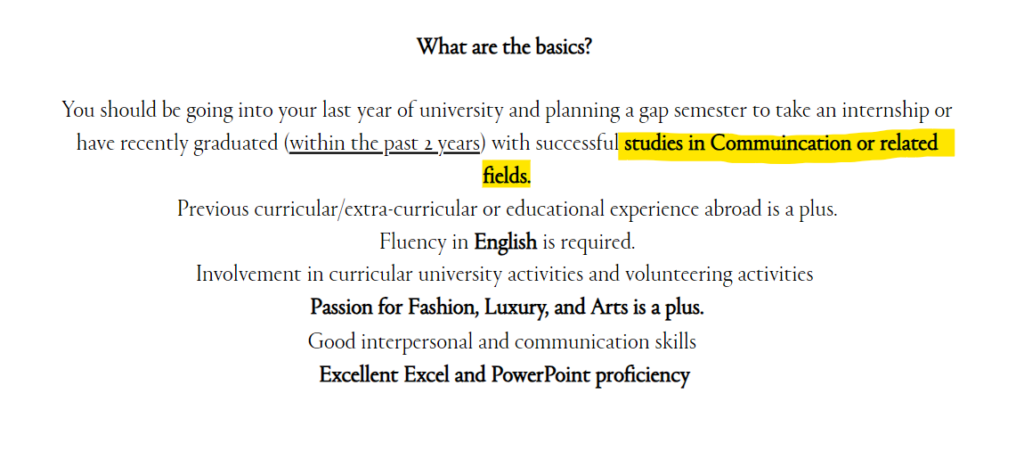
If you have already graduated with a traditional degree, or you are undecided about what to study, know that it’s not necessary to attend a fashion school as you can already get a job in fashion without it.
How to get a job in fashion without a fashion degree?
Now that we’ve seen the theoretical part and made sure that you don’t need a fashion degree to work in fashion, you might be wondering how to practically get a job in fashion.
Start from fashion internships
While obtaining a fashion degree is not absolutely necessary to work in this industry, interning is necessary to get into fashion.
Rare are the chances that any company will offer you a full-time role when you have just graduated. Every fashion professional – even Anna Wintour – had to start from internships because they represent your first real work experience within the world of fashion, serving as entry-level job opportunities for those without experience or just a little, students and recent graduates.
This is a common step before getting a full-time position. Fashion internships will provide you with the required experience that fashion companies demand for entry-level/assistant full-time jobs. If you have been looking for some fashion jobs online and you have noticed that many require previous experience even for entry-level positions, just know that that previous experience is the one you’ll get through fashion internships.
How to get a fashion internship without a fashion degree.
In the fashion industry, there are two types of internships: those open to students only and those open to everyone.
Fashion internships for students operate under a contract that requires students to be eligible for course credit. So you must be enrolled in your bachelor’s or master’s degree (fashion school or any university with a traditional degree) to apply for these fashion internships.

The second category is fashion internships open to everyone: recent graduates, career changers, or those seeking practical experience in this specific industry.
If your degree doesn’t include any internship and you are still a student, you are also eligible for these types of internships. My first internship in fashion was a generic one open to everyone even though I started it when I still had one month left of classes for my master’s in luxury and fashion management. The goal of these internships is not to complete a degree or master’s but to gain practical experience in the industry to eventually land a full-time position.
If in the description of the internship, you don’t read anything about college/school credit then it means the internship is open to everyone.
This for example is a screenshot from a Dior Public Relations Internship offer, and it doesn’t mention anything about being enrolled in a university and the need for school credit.
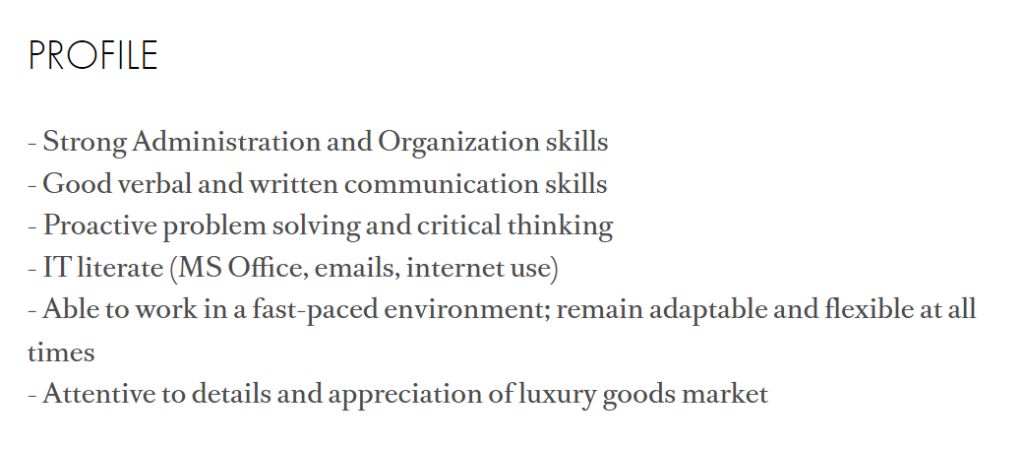
What does a fashion intern do?
Fashion internships can cover a wide range of roles and responsibilities depending on the company and the department you choose to intern in. In general, the fashion intern’s main job is to support the team or a specific person with the basics and practical tasks, such as running errands, drafting reports, analyzing data in Excel…We talk more about what fashion interns do in the different departments in this article.
In this article, I explain everything you need to know about fashion internships in 2024.
How to apply for a fashion internship without a fashion degree
Use unconventional strategies
The fashion industry is open to people with different backgrounds and you don’t have to check all the boxes including having a fashion degree. However, getting a job in fashion in 2024 is not as easy as before because there is more and more competition.
Nowadays, the winners aka those who manage to land a fashion job and internship are those who stand out among hundreds of other applicants. Indeed, with 500 people on average applying for the same job, you have to be smart about your application.
I encourage all my students to adopt unconventional strategies when applying for a job or internship in fashion.
What does “unconventional” mean?
An unconventional application includes a mix of strategies that go beyond the traditional, well-known methods of application.
For example one of them is to not look for fashion internships online only.
Although fashion and luxury companies post internship offers on their websites and LinkedIn, I suggest not limiting your research to them because those are not the only internships available.
My favorite strategy if you want to get a fashion internship? Ask for one by sending a cold e-mail to companies.
This strategy has proven to be super effective for the students of my online course Break into the Fashion Industry mainly for 3 reasons.
First, your application will stand out among other candidates who apply the official way, online.
Second, it demonstrates your motivation to work in fashion and not wait forever for opportunities to knock on your door.
Finally, by directly sending a cold e-mail to fashion companies, you are unlocking opportunities they haven’t considered publishing yet. Indeed, if you don’t see many internship offers online, it’s not because brands are not hiring for those roles, but because they haven’t posted the job board yet, or because they prefer to assign internships through word of mouth or those who contact them directly.
This is why I always recommend you to cold-email fashion companies.
Always include a fashion cover letter
One of the biggest mistakes fashion internship seekers make is sending their resume only. Truth is, it is no longer enough to land an internship in fashion.
When you are at the beginning of your career, your CV is usually very short because you don’t have (much) experience yet. Although it’s okay to have a short resume and it is not an obstacle to getting the role of your dreams, there are many things about you besides your experience that you may want to share with recruiters, such as:
- Expressing your motivation to work in fashion and land that specific internship
- Share about your personal projects (school projects, volunteering, freelancing…)
- Explain how your skills would match that specific role
- Address employment gaps, if any
- And much more.
A resume is just a schematic list of those and you cannot dive into details, however, on the cover, you have the space to explain them.
By pairing a strong cover letter with your resume, you create a more comprehensive picture of who you are and why you’re the perfect fit for the job.
In this article, I explain more about what a cover letter can show that a resume cannot.
Send a fashion portfolio
A portfolio gives you the chance to demonstrate your skills and talents to recruiters through a collection of your projects, and get you your first internship in fashion, regardless of what you studied or if you have previous experience.
Many believe it’s impossible to build a portfolio without previous experience in fashion, but just know that the projects you add inside don’t have to be necessarily related to previous work experiences. For example, the students of my Break into the Fashion Industry course have the option to work on projects that simulate real work scenarios across different fields (marketing, styling, design, buying, PR…). These projects can be used in their portfolio that they will send alongside their resume and cover letter to impress recruiters and stand out even if they don’t have experience or a fashion degree.
Although it is not expressly required unless you apply for an internship in design or styling, sending it spontaneously for other fashion internships will be appreciated. The fact that you are submitting your portfolio is seen by companies as a sign that you care A LOT about that position and that you are making an extra effort to produce this document.
“Why do I need a portfolio if I don’t want to become a designer?” you may ask. I understand because there is this myth that a portfolio is only useful for creative careers.
In reality, a portfolio is nice to have for any role in fashion – even those that are business-oriented.
I talk more about a portfolio for a job or internship in fashion in this article.
How to demonstrate your knowledge about the fashion industry even if you don’t have a formal fashion degree
Studying fashion is not necessary to work in this industry, however, it’s important to inform yourself about it through other means.
I suggest you incorporate into your daily routine fashion news, which you can read on platforms like Women’s Wear Daily, The Business of Fashion, Vogue Business, and Fashionista to learn about the business side of the industry, and our newsletter Inside Fashion for a weekly recap.
I also encourage you to regularly read fashion books, listen to podcasts, and watch fashion documentaries.
Those are a good addition to formal education. If you took a generic degree in business, marketing, communication… you can work in fashion but learning about fashion in your free time will add something invaluable for your personal and career growth.
If you don’t have a fashion degree, I recommend bridging your resume gap with online fashion courses. These courses are typically shorter than a formal fashion degree or master’s, making them not only more time-efficient but also more cost-effective. Despite the brevity, they provide valuable content that can enhance your CV with relevant fashion-related credentials.
I can tell you from my personal experience that online courses can not only broaden your knowledge about fashion, but they can also be a game changer for your career. Want to hear my story?
I was not born in a fashion capital but in the South of Italy. I was studying for my bachelor’s in Management Engineering, so to stay connected with my true passion which was fashion, whenever I had a bit of free time and a break from classes and exams, I took online fashion courses and worked on personal projects like starting a fashion blog or sketching fashion illustrations. And you know what? It paid off big time!
When I graduated with my bachelor’s in management engineering, I then decided to move to Milan to pursue my fashion dreams. When I moved to Milan, I took a one-year Master’s in Luxury and Fashion Management. The Master kicked off in May but I didn’t wait until my graduation to start applying for my first internships in fashion. Indeed I started my job search just after the summer in October.
I applied for 3 fashion internships, got 3 job interviews, got all the 3 internships thanks to my unconventional strategies (I teach about them in this free webinar), and I was lucky to choose my dream role at Alexander McQueen and start an eCommerce intern in December 6 months before graduating from my master. I’ll never forget when the recruiter who hired me told me that they didn’t choose me among other candidates because I was taking a master’s in luxury and fashion management, but because they saw my potential and true passion for the industry for those online fashion courses and personal projects I just did for fun each summer break during my university years.
She said that luxury fashion brands such as Alexander McQueen are used to receiving applications from students who graduated from the top fashion schools, so that is not very much a detail that impresses them. However, the online courses I took showed my genuine interest in fashion.
This is why I recommend so much to take online fashion courses as they can give an added value to your resume, especially if you don’t have much experience. Plus, they are a great way to learn about fashion in-depth without studying fashion.
There are different things you can learn in online fashion courses: the business side of the industry and how it works, the history of fashion, analyzing runways, careers in the fashion industry, a specific skill, global issues the industry faces, like sustainability, and the future of fashion (ie: technology, AI, etc.,) among others.
My Glam Observer Fashion Academy is meant to prepare you for a successful career in the fashion industry.
Being curious and staying up to date is highly important in a fast-evolving industry like fashion, and this is usually the main requirement from fashion companies: be curious, take initiative, and never stop learning. When you land a fashion internship, you will develop your skills and learn how to apply that knowledge into practice.
Read this article on how to learn about fashion for more information about resources you can check to inform yourself about the industry.
I hope this article gave you a great dose of motivation to get your (first) internship in fashion, even if you don’t have a fashion degree. Don’t let it be an obstacle to pursuing your fashion career dreams because many professionals succeeded without attending a fashion school and so can you!
Need more guidance from me to help you with your application?
In my online fashion course Break into the Fashion Industry, I explain step-by-step how to land your dream fashion internship.

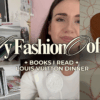

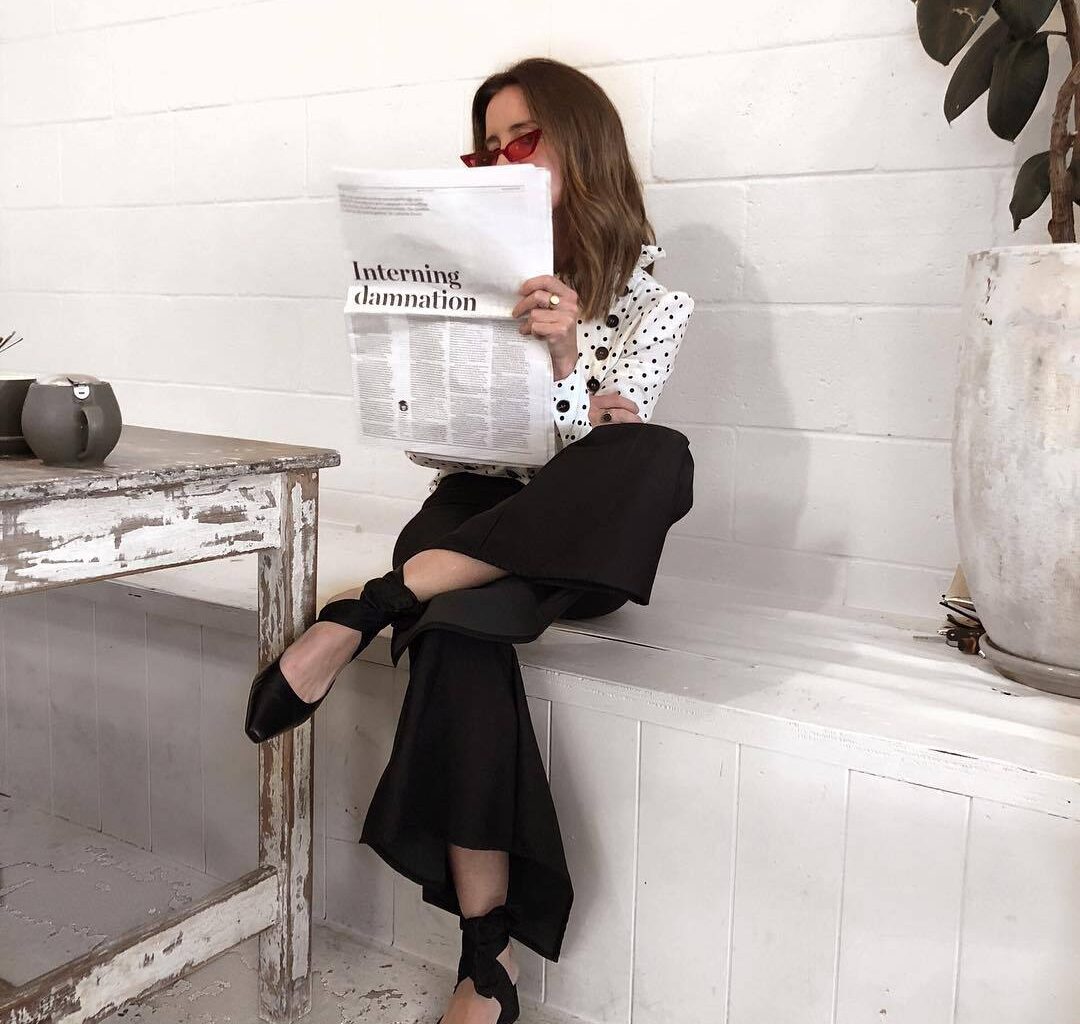
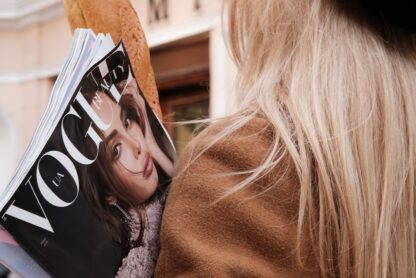
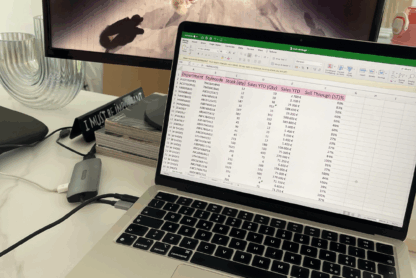
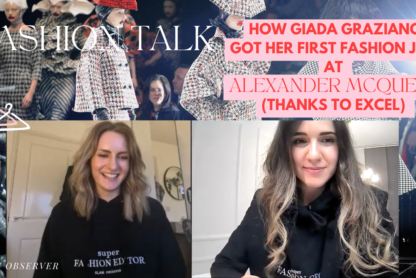
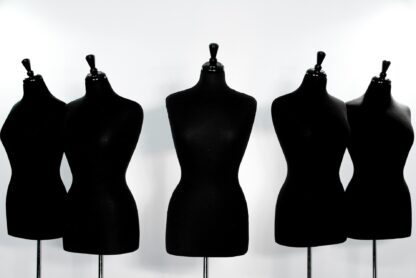
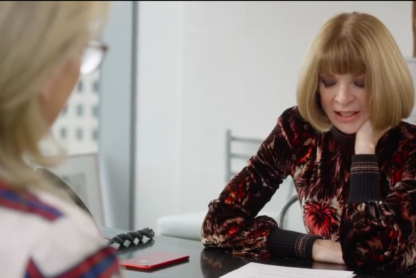
Your blog is very useful for those who want to know about “How to work in fashion without a fashion degree” ,and in this blog you have explained a lot more about “How to work in fashion without a fashion degree”. Today , many people are confused about “best online course for working people” , but I feel that your blog will put an end to that dilemma . Please write a blog like this in the future . I have also written an article on “Best Online Degree Programs for Working Adults”, which I hope will provide some more
information to your valuable readers.
“https://www.emergingtechuniversity.com/post/best-online-degree-programs-for-working-adults”
You gave me hope for carrier in this industry, thank you so much.